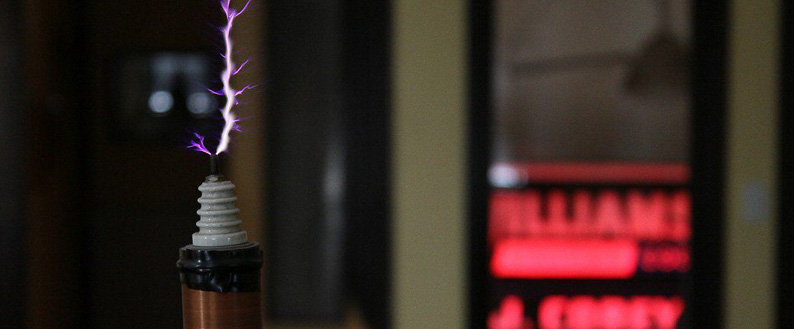Beyond the Propaganda: A Socioeconomic Guide to Understanding the U.S. Economy
By David Strand

Introduction: The Economy Isn’t Just About Numbers
For centuries, the economy has been one of the primary ways societies measure their prosperity, stability, and growth. It’s a topic we hear about constantly—in the news, from politicians, and in everyday conversation. Yet, for all its visibility, the economy remains a subject that many people only partially understand. Numbers like GDP, inflation, and unemployment only tell part of the story. To truly understand what’s happening, we have to look at the economy through a wider lens that includes not just data but also the social and emotional factors that drive it.
This guide is designed to help you see beyond the numbers. By exploring the economy socioeconomically, you’ll begin to understand how individual choices, social trends, and collective emotions all play roles in shaping the economic landscape. Let’s break down these connections and examine how the economy isn’t just a set of statistics—it’s a dynamic system impacted by people’s daily lives and feelings.
The Economy Through a Socioeconomic Lens
To view the economy socioeconomically is to look at how economic trends connect with the way people live, think, and feel. Traditional economic analysis focuses on data points like job growth or inflation. But the socioeconomic approach digs deeper, exploring how those numbers interact with people’s lived experiences. For example, even if job numbers are rising, if wages are stagnating and costs of living are increasing, many people will feel that the economy is challenging, despite what the numbers might suggest.
Think of the economy like a massive network of human interactions. Every decision people make—from choosing to save rather than spend, to buying a home, or even moving to a new city—feeds into this system. These choices, collectively, can push the economy in new directions. When we look at the economy this way, it becomes clearer that it’s as much a reflection of human behavior as it is a matter of raw data.
How Emotions Influence Economic Trends
One of the most powerful factors in the economy is something economists call “consumer sentiment.” This is essentially a measure of how people feel about the future. Are they optimistic, or are they worried? High consumer confidence usually means people are willing to spend more, which boosts the economy. Low confidence often leads to more saving and less spending, which can slow things down.
Emotions play a big role in economic cycles. For example, after major economic disruptions—such as the 2008 financial crisis or the COVID-19 pandemic—people’s fear of instability often makes them more cautious with their money. This “cautionary” behavior impacts demand, job creation, and business growth. Even in a period of recovery, if people feel uncertain, the economy can struggle to bounce back quickly.
Understanding how emotions affect the economy can give you insight into why certain economic trends happen and how you might make decisions in response. For instance, knowing that a period of low consumer confidence could slow down spending, you might approach financial planning with more caution yourself.
The Role of Societal Shifts in the Economy
Society’s changing values and lifestyles also play an important part in economic trends. Major shifts in how people work, where they live, and what they value all feed back into the economy. A recent example is the shift to remote work, which accelerated during the pandemic. As millions of people began working from home, there was less need to live close to urban centers, and many relocated to more affordable areas. This created ripple effects in housing markets, transportation, and even local businesses.
Another societal shift affecting the economy is the growing focus on sustainable and ethical consumption. As more people make purchasing choices based on environmental or social values, industries are adapting to meet this demand. In turn, the economy is gradually shifting to accommodate new products and services that align with these values.
When we look at these changes from a socioeconomic perspective, it’s clear that societal shifts don’t just follow the economy—they shape it. As values and lifestyles evolve, so too does the economic landscape.
Why Socioeconomic Awareness Matters
Understanding the economy through a socioeconomic lens gives you a more balanced view, helping you see beyond isolated statistics. Numbers like GDP growth or inflation can be used to push certain narratives, but they don’t always capture the full picture. By understanding the economy in a way that includes human behavior, emotions, and societal values, you gain a more realistic and comprehensive understanding.
This awareness also helps you protect yourself against misinformation or propaganda. Knowing that economic data can be interpreted in different ways, you’ll be better equipped to make sense of the messages that politicians, media, and advertisers send out. When you understand the human side of the economy, you’re less likely to be swayed by selective data or headlines.
Conclusion: A Balanced View of the Economy
The economy is a complex, ever-changing system, and it’s not just shaped by numbers. Human behavior, social values, and collective emotions all play roles in creating the trends we see. By approaching the economy from a socioeconomic perspective, you gain a more accurate, balanced view. You begin to understand that the economy is as much about people and their decisions as it is about data.
As you enter the world of work, finances, and family life, remember that the economy you see on the news is only part of the story. Understanding the interplay between data and society will help you make informed choices and better navigate the economic world.
FOOTNOTE: Understanding the Basics of "The Economy" is Your Best Defense Against Propaganda
Because the economy is so subjective, it’s easy for politicians or the media to use it to influence public opinion. Propaganda, or biased information meant to influence you, often takes advantage of people’s lack of knowledge about the economy. If you don’t understand the details, it’s easier for someone to convince you that things are either much better or much worse than they actually are.
This is why understanding the basics of how the economy works is so important—it’s your best defense against being misled. When you have a strong sense of what’s happening in the economy, you’re less likely to be swayed by one-sided arguments. Instead of relying only on headlines or sound bites, you can look at multiple sources, consider the context, and form your own opinion based on your experience and knowledge.
In the end, the economy is subjective, and no single person or statistic can tell the whole story. But by becoming informed, you gain insight that helps you see through propaganda and make decisions based on a clearer picture, instead of letting others control the narrative.
In a world where economic "facts" are often used to influence your opinion, understanding the basics of socioeconomic patterns, in particular, is one of the strongest tools you can have for maintaining your wits on "the economy".
PHOTO CREDIT: David Strand





